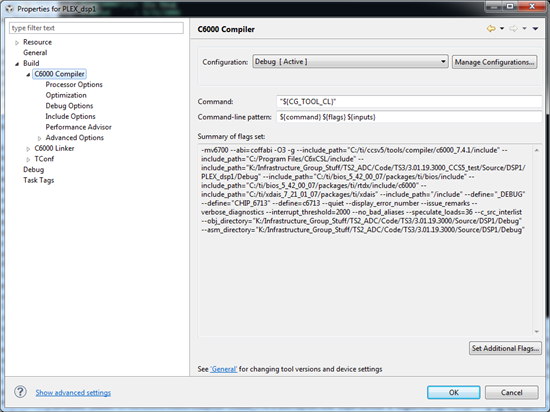I am attempting to migrate a CCSv3.3 project from one of our legacy products to CCSv5.3, because I will be needing to add a few features to it over the next 6 weeks or so. Any documents you can point me to that would assist with this would be greatly appreciated. Currently, the issue I am having is that one of the TI header files in the legacy code is not being found by CCS5.3. It is the csl.h header file.
Got through the CSL stuff on this but now I get the following error:
INTERNAL ERROR: C:\ti\ccsv5\tools\compiler\c6000_7.4.1\bin\opt6x.exe experienced a segmentation fault while
processing function _GetTime file C:\\Users\\chadw\\AppData\\Local\\Temp\\064042
This is a serious problem. Please contact Customer
Support with this message and a copy of the input file
and help us to continue to make the tools more robust.
>> Compilation failure
gmake: *** [K:/Infrastructure_Group_Stuff/TS2_ADC/Code/TS3/3.01.19.3000/Source/DSP1/Debug/log_func.obj] Error 1
gmake: Target `all' not remade because of errors.
**** Build Finished ****


